Cheese
Today is the 36th anniversary of the first moon landing (July 20, 1969). Moon’s almost full, so you’ll get a great look at it.
Google put up a moon site recently – www.moon.google.com. Be sure to zoom all the way in <g>.
VCIR Blog
Some of you know that I’m chairing the annual Venture Capital in the Rockies conference this year (now called VCIR Winter). VCIR is put on annually by the Rocky Mountain Venture Capital Association and brings together a national group of venture capitalists for presentations by 22 rocky mountain companies that are currently seeking capital. This year’s conference will be held March 3rd through 5th up at the Hyatt in Beaver Creek (hey – we play to our strengths and the skiing up there is fantastic!).
Being the conference chair has been a pretty involving job (certainly more than I thought I was signing up for – especially in a down economy with sponsorship budgets tight) but also a very rewarding one. Among the things that I’ve changed around this year is the conference web site – www.vcirwinter.com. Along with a new look and feel there’s some new functionality – in particular the VCIR Blog. We’ll use the conference blog to not only put up announcements about the conference but also to give the presenting companies the chance to post about their businesses, have some long time attendees talk about their experiences at past conferences and, of course, to live-blog the conference itself.
I hope you’ll check it out and subscribe.
George Bush Sings!
How not to pitch your business
I had an exchange with an entrepreneur last night that I couldn’t resist posting (I did resist including the guy’s name, however). It started with a relatively typical email. One which I wonder why I still receive but still get regularly. The entrepreneur writes:
Seth…..I’d like to pitch you on a start up. I need the help of someone like you. I haven’t filed any patents yet and I need a nda signed. can we do it?
I respond as I do for all requests like this by saying:
Hi [name redacted]. Like most VCs I don’t sign NDAs (see: https://www.sethlevine.com/wp/2008/01/why-i-dont-sign-ndas). Let me know if you’d still like to show me what you’re up to (totally understand if you feel it’s too sensitive).
Here’s what I received in response:
Seth….I’m reaching out to you here, lets get off this old cookie cutter vc "don’t sign nda’s" attitude, it’s only until the patents are filed. I believe I’ve got one of the biggest deals to come down the pike in years. This isn’t my first rodeo. Just FYI, no matter how hard you crunch the numbers, this is a 20+B per year deal. I already have demo software and I need you to help me put a team together, the money will come as soon as we are able to "show and tell" so to speak. Please reconsider.
Really? That’s how you’re engaging with me? I can’t imagine how you think this is a winning strategy. Am I supposed to be bowled over by how amazing this potential opportunity might be, change a cardinal rule of our business and through this series of emails think that you’d be a competent manager, effective advocate for your business and a good guy to work with?
The initial email is completely casual, full of mixed cases and grammatical errors. Oh, and totally un-researched. But the second response really takes the cake and what caused me to post this for the world to see. Of course you have one of the biggest deals ever. Clearly this isn’t your first rodeo. Certainly you’re playing in a $20BN market. And without question I’m just one of those cookie cutter VCs. Obviously I should change my attitude.
[BTW, in case you were wondering, I didn’t bother responding]
How much does Google really know about you?
In case you were wondering what goods Google has on you check out http://www.google.com/ads/preferences/ from the browser you typically use for web browsing and search. If you scroll down you’ll see what interests Google has you pegged for and get to see the data they have collected on you in your cookie.
For me the most interesting part wasn’t the data they had on me, but looking through the Google interests taxonomy at the bottom of the page. There are specific tags for individual car brands, for your love of Bollywood movies, pest control, screensavers, etc. It’s an interesting glimpse into how Google thinks about the world (and more importantly into what categories Google thinks it can make money by trafficking).
Entrepreneurship behind the wall: A trip to Palestine
 If you’ve been a reader of my blog for any time you’ll know that I’m intrigued by (and a big fan of) the notion of The Democratization of Entrepreneurship. It’s not that I think entrepreneurship solves all the world’s challenges, but I deeply believe in the notion of entrepreneurship as a catalyst for positive social change across the globe. It’s a powerful force and we’re seeing more and more examples of entrepreneurs creating real change around the world, community by community.
If you’ve been a reader of my blog for any time you’ll know that I’m intrigued by (and a big fan of) the notion of The Democratization of Entrepreneurship. It’s not that I think entrepreneurship solves all the world’s challenges, but I deeply believe in the notion of entrepreneurship as a catalyst for positive social change across the globe. It’s a powerful force and we’re seeing more and more examples of entrepreneurs creating real change around the world, community by community.
Late last year I had the opportunity to spend a week in Palestine working with entrepreneurs and traveling in the region. It was part of my work as an advisor to Sadara Ventures – the only Palestinian focused venture fund (Google, Soros, the EU, Skoll Foundation and others are investors in the fund). It was an eye opening trip to say the least and a truly amazing experience to be working with entrepreneurs in an area that is experiencing so much turmoil.
This is a personal story and one about entrepreneurship. But it’s impossible to tell that story without the context of the political reality on the ground. In fact everything in Palestine to some extent takes place with that backdrop (and perhaps – at least as it relates to business and investment – in spite of it). I’m in no way trivializing the conflict nor suggesting that the answers to the region’s problems are easy ones that can be fixed if we only better supported entrepreneurs. But it was refreshing to spend time with people living literally behind the wall, but looking past the political situation to try to create an environment in which entrepreneurs can survive and thrive. While in Palestine I had the opportunity to work with a number of entrepreneurs, meet with locals in shops and restaurants, but also to meet with a handful of key business leaders as well as the Vice President of the Palestinian Authority. The perspective I gained was a true cross section of Palestinians and as varied as the backgrounds of the people I met.
A little background and context. Palestine can be a rough place. GDP per capita is low – about US$ 1,650 per capita. The overall labor force participation rate is only 43% and unemployment is over 20%. The population is very young – 70% are below the age of 30 (and 40% younger than 15) and youth unemployment is over double the overall rate.
Movement in the territories is pretty restricted (and here I’m referring to the West Bank and not Gaza, which is completely closed off). The West Bank itself is about 5,600 square kilometers (so not exactly tiny) but movement into and out of the territory is difficult. As a foreigner I could come and go as I pleased (as a side note, getting into the West Bank was much easier than getting out – really meaning getting back into Israel; the very heavily armed Israeli soldiers weren’t all that impressed with my US passport, nor I suspect my very Jewish sounding name given where I was coming from). Some Palestinians do have papers that allow them to travel into and out of the West Bank (particularly those born in/living in East Jerusalem which is an area in dispute, but is on the Israeli side of the wall). Israelis are restricted from entering Palestine – by the Israeli government (presumably concerned that any violent act by or on an Israeli would case a political storm) – and several of the Israelis associated with Sadara had to obtain day passes to enter and exit (they were denied the ability to stay overnight in Palestine and instead had to drive back to Jerusalem each night; I was able to stay in the center of Ramallah at what turned out to be a pretty nice hotel). Cars in the West Bank are restricted to the territory if they have a white license plate but can access Israel if they have a yellow one. Even in Israel travel is a somewhat restricted with frequent check-points on the main highways (traffic slows, but does not stop through these).
Entrepreneurs in Palestine are like entrepreneurs everywhere – optimistic, hard working, a tad fanatical at times. And while many of the businesses I was helping with were building products targeted to the Arabic speaking world in the EMEA region, the businesses they are creating would be familiar to any entrepreneur – travel and hotel bookings, content for kids, a gaming platform, 3D rendering systems, etc. It’s that passion for their projects combined with their desire to build businesses in Palestine that really stuck out to me from my visit. Many of the entrepreneurs I met with were educated in the US or Europe and had papers that would have allowed them to start their businesses elsewhere. But they’ve chosen to come back to Palestine to work there in an effort to try to make a difference in their homeland. Many spoke eloquently about this choice and the decision to move back home. I have a lot of respect for that kind of national pride. But especially in the context of the political situation in the West Bank where another Intifada would put the region again in a tailspin – business leaders in Palestine talk openly about wanting to avoid this but also with the understanding that there was little anyone could do to either predict or prevent another uprising (although they also recognized that economic stability leads to greater political stability).
I left Palestine completely energized about the work going on there in the entrepreneurial community and hoping that I can continue to help pursue economic development in the region.
What follows are some images from my visit as well as some background about them.
Video from the “no-man” zone on the Palestinian side of the wall but not yet truly in Palestine (the Israelis set this area up basically as a buffer to Israel but its become this sort of bizarre in-between land that’s neither a true part of Israel or Palestine. There are several refugee camps just to the south of this area that we passed on our way in.
https://www.youtube.com/watch?v=S-Q9vaLS0qc&feature=youtu.be
The difference between the Israeli side of the wall and the Palestinian side makes it clear who erected the barrier. The Israeli side is pristine while the Palestinian side is covered with graffiti.


Pictures of Yasser Arafat are everywhere in Palestine.

I was fortunate to have the opportunity to have lunch with Dr. Mohammad Mustafa, Vice President of the Palestinian Authority. He’s widely talked about as the next PM of the Palestinian Authority. Interesting to say the least (my visit happened to coincide with a visit to the region by John Kerry, the US Secretary of State). The details aren’t appropriate to get into, but Dr. Mustafa has an economics background (he was trained in the US and worked for 20 years in Washington) which I think lends itself to a pragmatic view of the world. Although even with that, the severity and length of the conflict leave even practical thinkers on both sides at odds over certain of the most difficult points of contention.
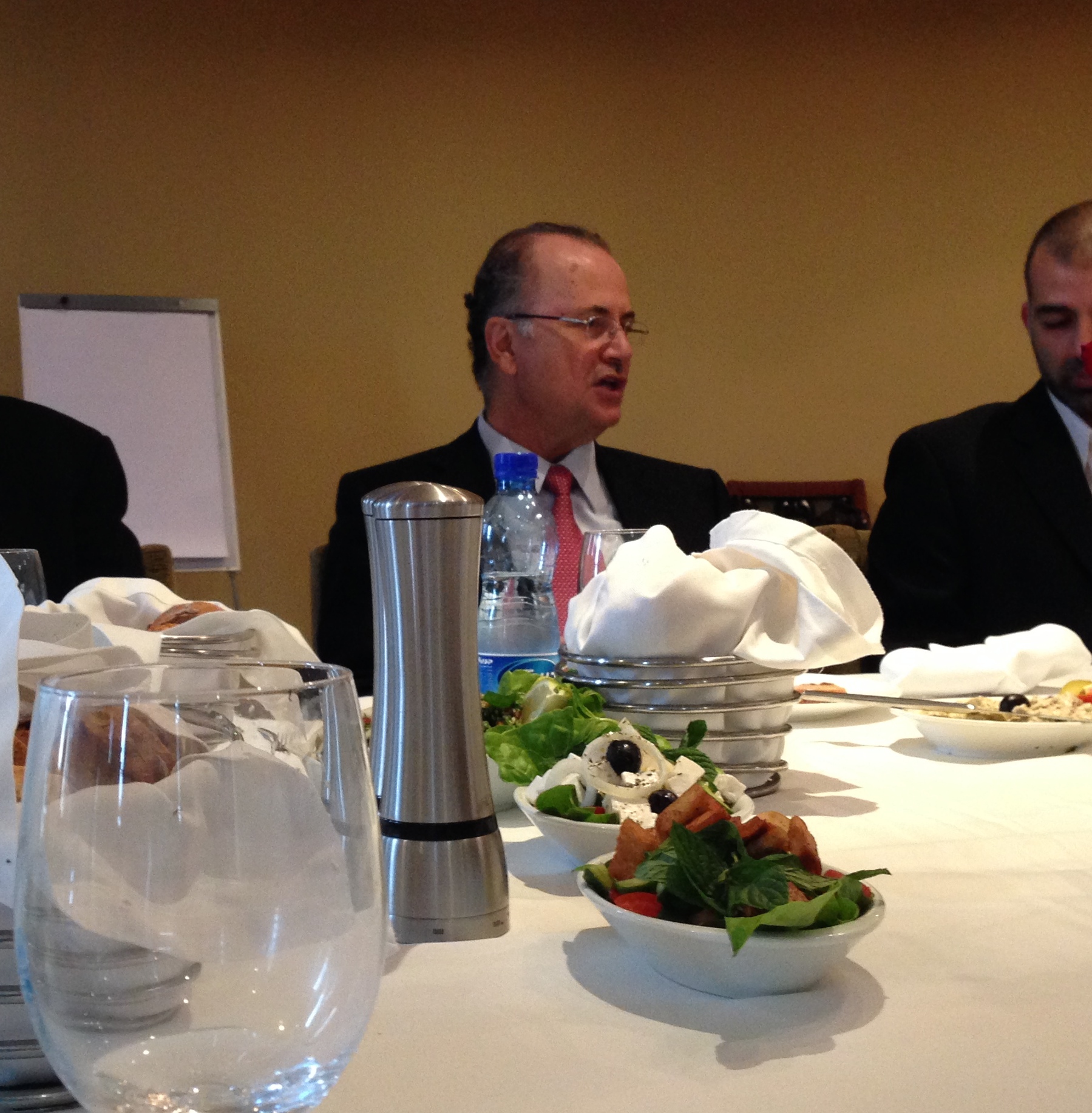
I had a chance to tour Jerusalem for half a day. It was my first time in Jerusalem – obviously a city rich with history. The pictures below include me at the Western Wall as well as some of the marketplaces and architecture around town.






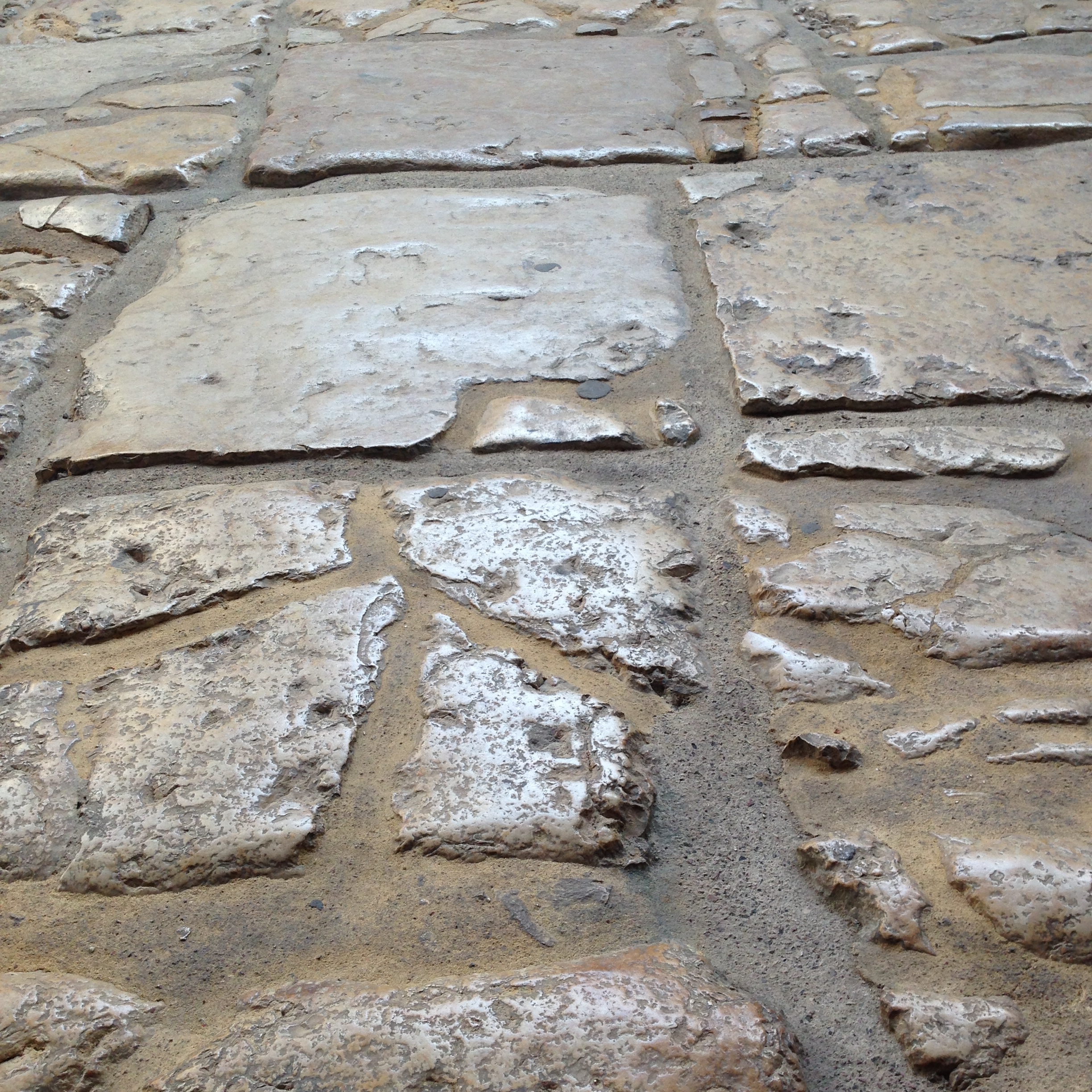
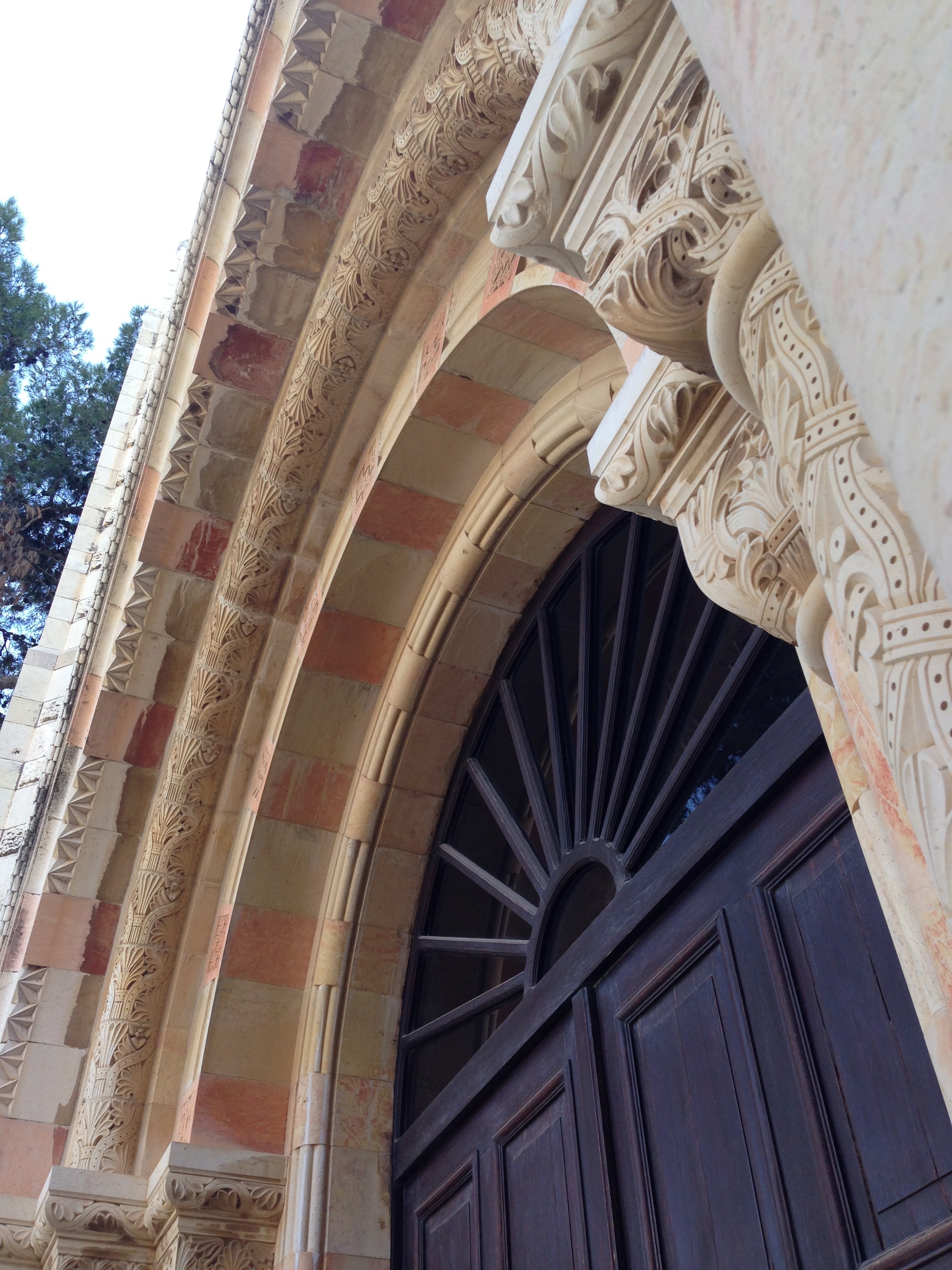
My tour guide in Jerusalem said something to me that, while I hope isn’t true, really stuck out to me. We had just gone through the Church of the Ascension and were ending our tour. Sitting on the steps of the Church I said to him: “You seem like a pretty reasonable guy and you’ve lived here for something like 20 years, what do you think the solution is to the fighting and disagreement in the region?” To which he responded: “That’s such an American question. What makes you think there’s any solution? This is a place where people have been fighting each other for 3,000 years. Maybe that’s just how it’s going to be.” I certainly hope that’s not the case, but the idea of finding a “solution” as being a distinctly American way of thinking was something I’d never thought about in that way before (I asked him if this view was broadly held he said it was, although he and many of his friends do hope that there’s some kind of path to peace).
I was also able to tour around Ramallah and the West Bank a bit and captured some photos from that part of my trip as well. Among the photos below is the “Stars and Bucks” coffee shop in Ramallah, the still under construction city of Rawabi – sometimes referred to as the “Palestinian Settlement” (it’s a full city being constructed for Palestinians in central West Bank; I had a chance to meet Bashar Masri who is a well known Palestinian entrepreneur and the main force behind the project). There’s also a picture below of the Entrepreneur Meet-up that we hosted in Ramallah one of the evenings of my visit. We had over 100 Palestinian entrepreneurs get together to talk about creating entrepreneurial communities and enhancing opportunities for Palestinian entrepreneurs. There’s also a picture of the “Startup Weekend Ramallah” sticker that I saw on many laptops around town – Ramallah has now hosted two such weekends.

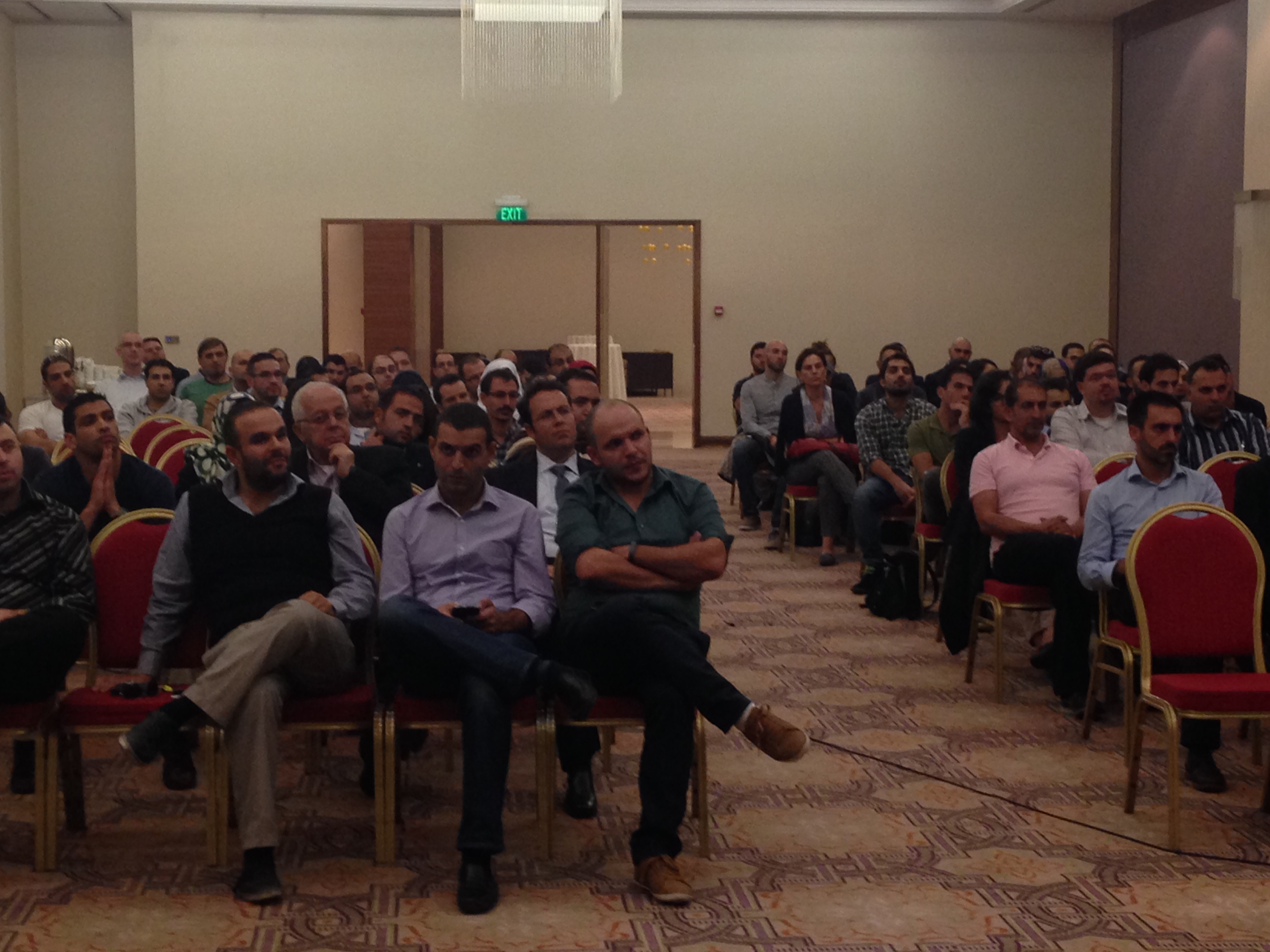

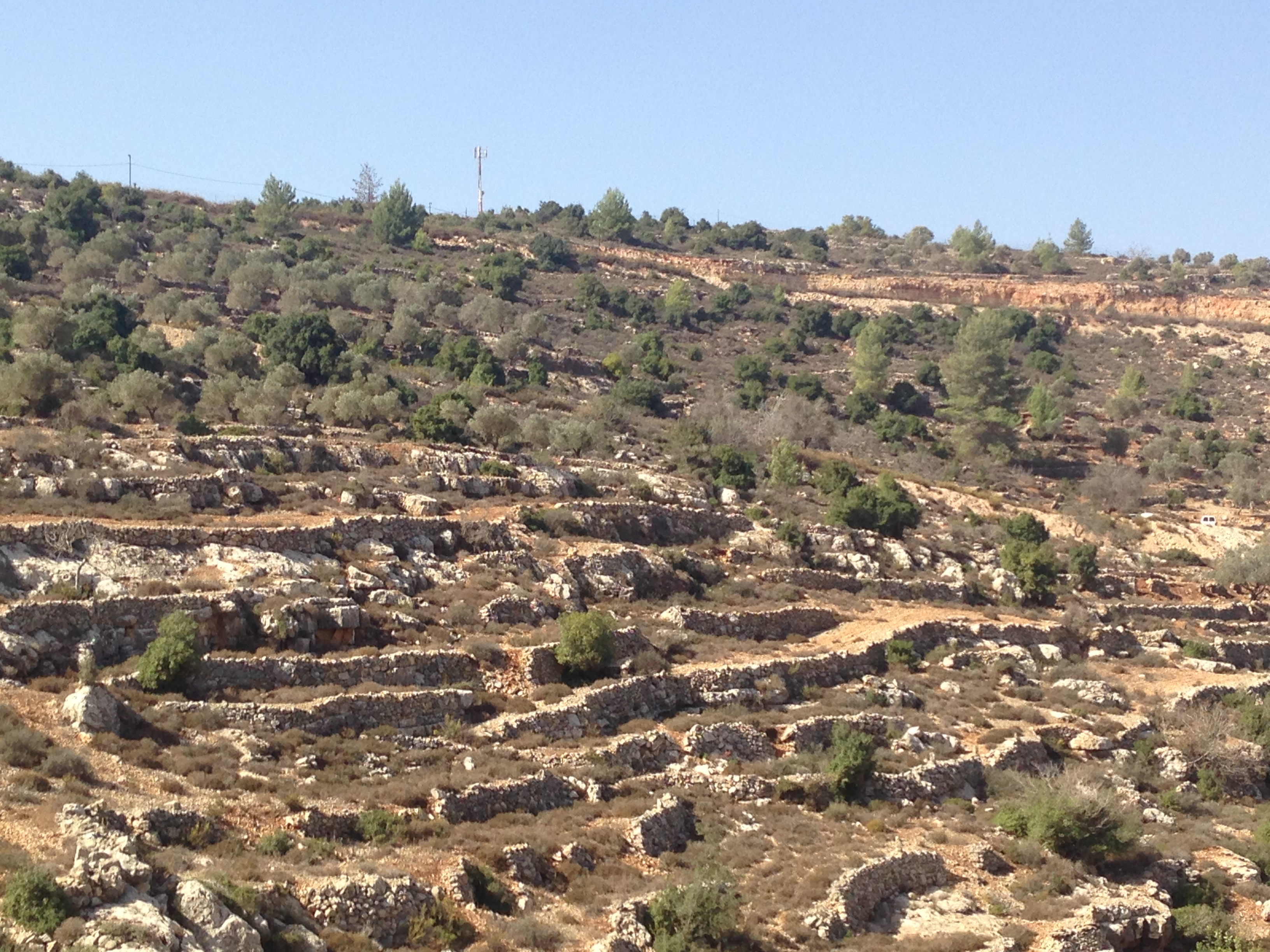
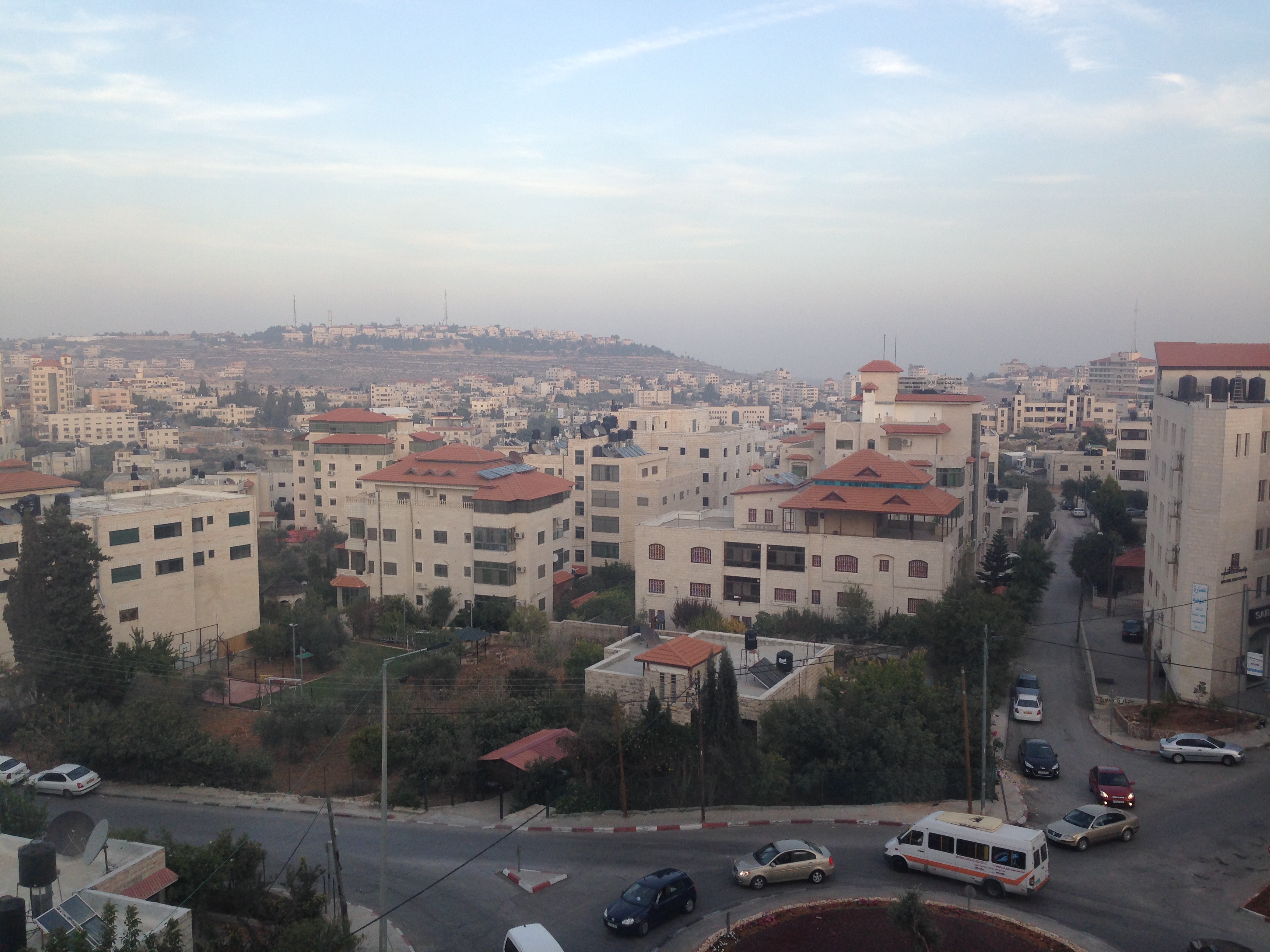
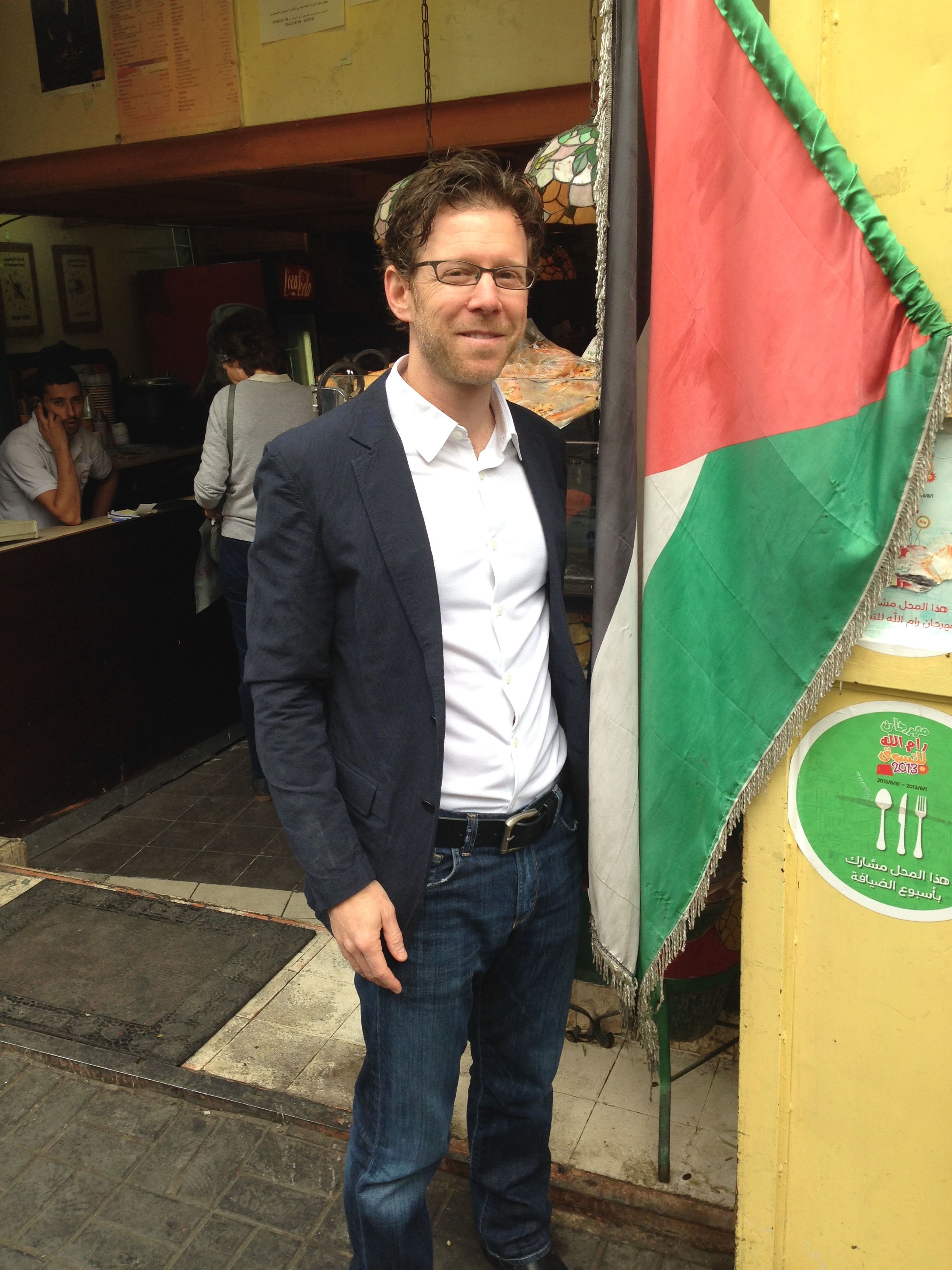
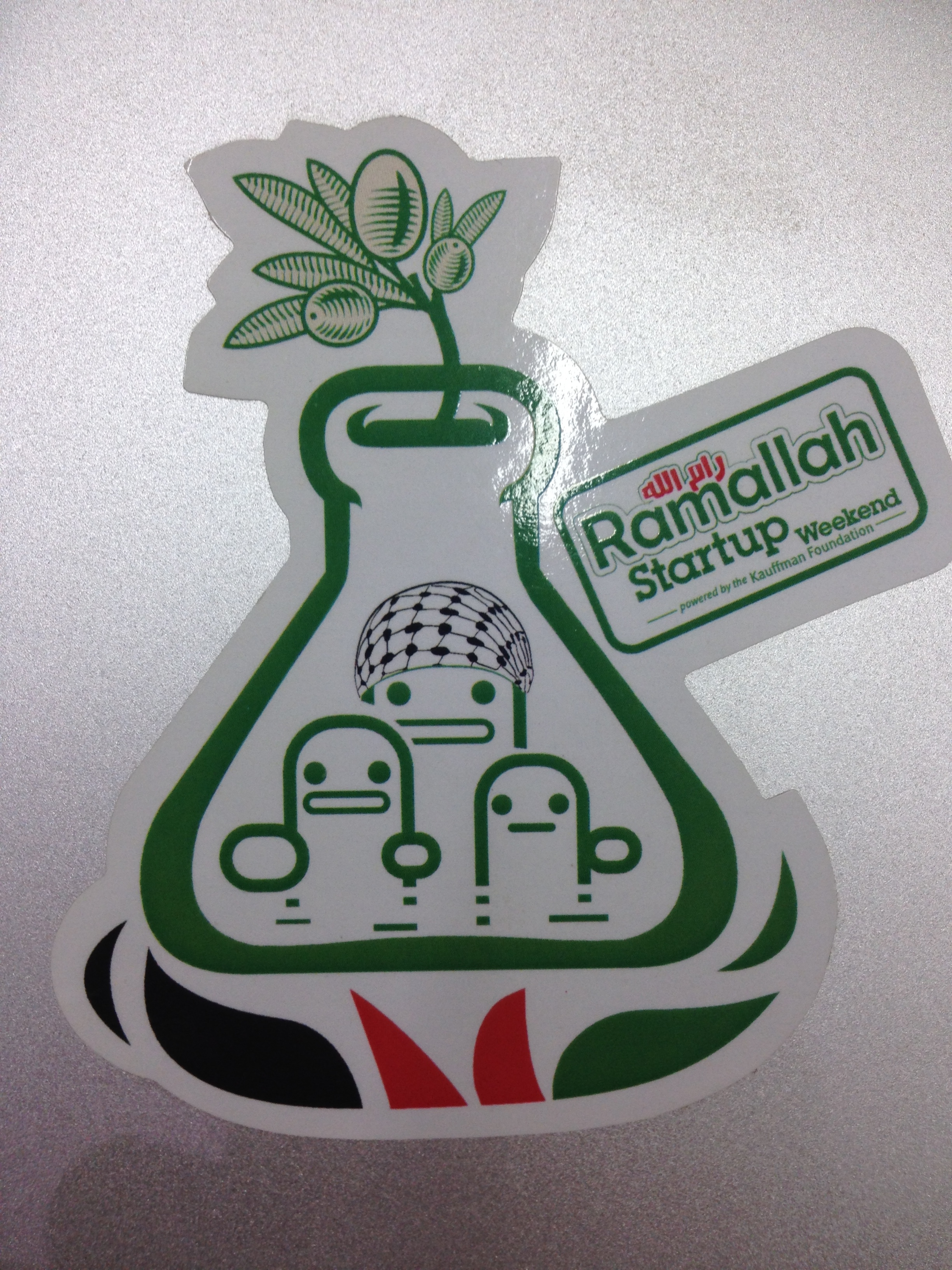
The final story from my trip comes as I was leaving. The airport in TelAviv is famous for its security – I had to show my passport 3 times before I even got to the check-in counter. As part of this process every passenger goes through a triage process where they’re asked various questions about why you’re traveling, what they were doing in Israel, etc. Basically trying to suss out whether you’re likely to want to try to sneak a bomb onto your plane (based on this interview they then put you through various tracks of security ranging from pretty much what you’d experience in any US or European airport to hour+ interrogations accompanied by detailed bag and person searches). Upon taking a look at my passport the triage team in my case then spent the next 10 minutes quizzing me in a way that I can only summarize as “Exactly how Jewish are you?” I had provided them some information on the purpose of my visit (but no details on where I went or whom I met with) so that had at least a little context – you would think – to give them reason to ask about what I was doing there. But no – all the questions were centered on where I went to temple, how often I went, etc. Apparently I successfully convinced them that I was Jewish enough because after 10 minutes they let me through the light version of Israeli security.
A huge thank you to Saed and Yadin from Sadara for hosting me. And especially to all the great entrepreneurs I met with while I was there (especially George for the great meal in East Jerusalem and Yousef for our breakfast in Ramallah). It’s both humbling and exciting to be welcomed so warmly into this great community of entrepreneurs.
What makes a great start-up market?
Here’s one take on that ubiquitous question (ubiquitous at least for those of us who live outside of the bay area). The simple answer is Nerds and Money, but the more complex answer is much more amusing.
Join the search revolution! Introducing: Trada
 While search marketing is already a huge business, more and more companies each day are discovering the advantages of advertising directly to customers through search engines. Companies like that they can directly measure the impact of their spending – from the clicks they are generating all the way through the products they are selling as a result of those site visits and that they can quickly and easily scale up their spending on what’s working in their search campaigns. With different ad groups, ad copy and landing pages, search marketers can customize their campaigns to fit their business needs.
While search marketing is already a huge business, more and more companies each day are discovering the advantages of advertising directly to customers through search engines. Companies like that they can directly measure the impact of their spending – from the clicks they are generating all the way through the products they are selling as a result of those site visits and that they can quickly and easily scale up their spending on what’s working in their search campaigns. With different ad groups, ad copy and landing pages, search marketers can customize their campaigns to fit their business needs.
If there’s a downside to search, however, it’s that effectively managing search campaigns is extremely difficult. Even if you confine your efforts solely to Google the complexities of creating ad groups, generating keywords, pricing each keyword, creating deep links into your product catalogue, managing spend variants by day, figuring out broad match vs. phrase match vs exact match vs negative match, etc are daunting.
One of the ironies of search is that while technology of search itself is in many ways disaggregating the relationship between marketers and consumers (and bringing them directly together), the business of search itself isn’t something that can easily be disaggregated by technology in the same way. Search is simply not something that lends itself well to machine automation. And while there are a few software platforms available for managing search campaigns (mostly focused on the high end of the market spending > $100k/month on search) these packages are primarily designed for people who are already search experts. It’s almost impossible to take search knowledge and put it into an algorithm. As a result, companies that lack this expertise are at a huge disadvantage in the search game (this is true of many agencies as well who use search marketing as a lead-in to offer other more lucrative services).
Today we’re launching Trada. And fundamentally changing the game in search marketing.
Trada has been working in stealth mode for the last 18 months to build a system that harnesses the power of a “crowd” of search experts to work on behalf of advertisers. The Trada system easily allows advertisers to upload campaign information and connect with hundreds of search experts. It’s not a referral site – the Trada experts work together, through the Trada platform, to create the broadest possible campaign for each advertiser. These experts get paid only for generating clicks and/or conversions for Trada advertisers (depending on whether a campaign is in pay per click or pay per action mode). We work in the middle to enable these campaigns and make our margin based on our search experts’ ability to beat your pre-determined CPC or CPA rates.
The company opened its system to a small group of advertisers in January 2009 as it worked out the specifics of the platform. Trada has served over 70 customers in that time period. The average campaign in the Trada system has over 100 ads (most proposed by Trada optimizers), 6,200 keywords and an average of more than 20 optimizers working on behalf of each advertiser. If you’re working in search marketing, these numbers blow you away. Advertisers can currently run campaigns – through a single Trada interface – on Google, Yahoo and Bing.
This company is near and dear to my heart, as I’ve been with CEO Niel Robertson and the rest of the Trada team from the very start of the business (and together with them am a co-founder of the company; read Niel’s post launching the company on the Trada blog). I’ve known Niel for almost 10 years now and one of our goals with Trada has been to step away from the traditional VC/CEO relationship. We’ve done that over the last 18 months of the business and developed an unusually close partnership – the initial result of which you see today. There’s a ton more to come with Trada. Stay tuned!
Learn more about the search revolution at www.trada.com.
This is a unique approach
I was sent the following a few days ago:
In order to give investors a sneak peak of what we’re up to, we’ve created a
short video (4 mins): http://www.youtube.com/watch?v=E9fiEu_TBdU
I appreciate the effort behind stuff like this (as well as the novel thinking).
While we’re on the topic, if there’s ever something you want me to take a look at, tag it to my del.icio.us account (for:slevine).
48 hours ago…
Just over 48 hours ago 72 people came together in Boulder Colorado to see if they could come up with a business idea and launch by midnight Sunday. We started Friday night with a handful of ideas . . . winnowed the list down to the top 3 favorites . . . and picked one to run with. Here’s the result:
The process of working on a business with 70 people in such a short period of time was amazing. I’ll put up some of the notes I took throughout the weekend in a post tomorrow but you can see a running tally of the experience at www.startupweekend.com. This was entrepreneurship on steroids and was as much about the social experiment of starting a business as it was about the idea itself (something lost on many of the comment authors on our TechCrunch posting, but not lost on anyone who actually participated).
Check out what we accomplished, but know that this is just the tip of the iceberg…


